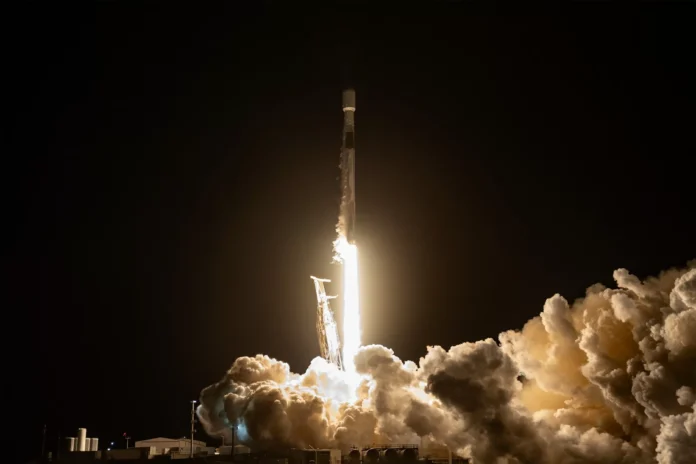SpaceX, the aerospace company founded by Elon Musk, has once again made history with its latest launch on December 21st. The company successfully launched 30 satellites on its second dedicated rideshare mission to mid-inclination orbits. This achievement marks another milestone for SpaceX and the space industry as a whole.
The launch took place at the Cape Canaveral Space Force Station in Florida, with the Falcon 9 rocket carrying the 30 satellites into orbit. This was the second mission in a series of dedicated rideshare missions by SpaceX, with the first one taking place in June earlier this year. The success of these missions highlights the company’s commitment to providing affordable and efficient access to space for small satellite operators.
The mid-inclination orbit, also known as the Sun-synchronous orbit, is a highly sought-after orbit for satellite operators. It allows satellites to pass over the same point on Earth at the same time each day, making it ideal for Earth observation and remote sensing missions. This orbit is also crucial for communication and navigation satellites, making it a valuable asset for the space industry.
The 30 satellites launched by SpaceX belong to various customers, including government agencies, universities, and private companies. One of the notable satellites on board was the SXM-7 satellite for SiriusXM, which will provide satellite radio services to customers in North America. This launch also marked the first time SpaceX has carried a satellite for SiriusXM, showcasing the company’s growing list of clients.
The success of this launch is a testament to SpaceX’s innovative approach to space transportation. The company’s reusable rockets have significantly reduced the cost of space launches, making it more accessible for smaller satellite operators. This has opened up opportunities for new players in the space industry, promoting innovation and competition.
SpaceX’s dedication to its rideshare missions is also a step towards achieving its ultimate goal of colonizing Mars. The company’s Starship spacecraft, currently in development, will be capable of carrying up to 100 tons of cargo to the Red Planet. These rideshare missions not only generate revenue for SpaceX but also provide valuable data and experience for future Mars missions.
The success of this launch also highlights the growing demand for satellite launches. With the increasing use of satellite technology in various industries, the demand for affordable and efficient launch services is on the rise. SpaceX’s rideshare missions cater to this demand, providing a cost-effective solution for satellite operators.
The post-launch statement by SpaceX’s President and Chief Operating Officer, Gwynne Shotwell, further emphasizes the company’s commitment to its rideshare missions. She stated, “We are proud to provide a cost-effective solution for small satellite operators to access space and look forward to continuing to expand our rideshare program in the future.”
This launch also marks the end of a successful year for SpaceX, with a total of 26 launches in 2020. The company has achieved several milestones this year, including the first crewed mission to the International Space Station and the successful deployment of its Starlink satellite constellation. These achievements have solidified SpaceX’s position as a leader in the space industry.
In conclusion, SpaceX’s second mid-inclination rideshare mission is another remarkable achievement for the company and the space industry. The successful launch of 30 satellites to the highly sought-after orbit highlights the company’s commitment to providing affordable and efficient access to space. With its innovative approach and dedication to its goals, SpaceX continues to push the boundaries of space exploration and inspire the world with its achievements.

